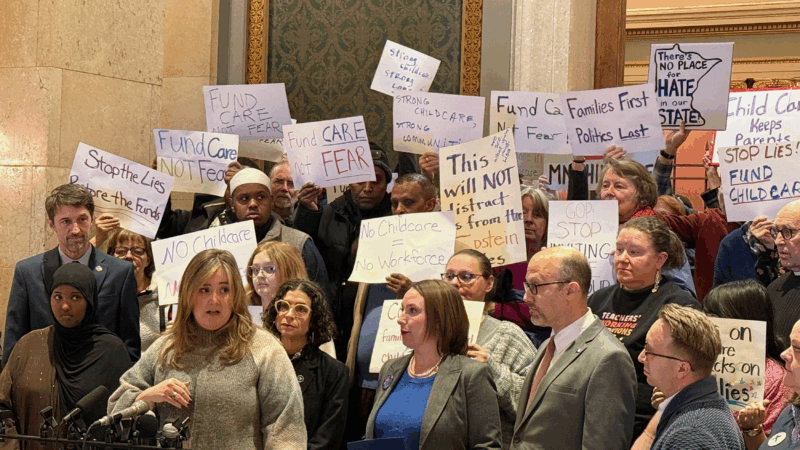Trisha Powell Crain Talks Money, Politics, and More in Alabama Education
There’s never a shortage of stories coming from Alabama’s schools. But before WBHM’s and the Southern Education Desk’s “Issues and Ales” education forum Thursday evening, we wanted to shed as much light as possible on the big picture behind the headlines. For better or worse, that backdrop always includes money and therefore politics. So our education reporter Dan Carsen sat down with Alabama School Connection founder and BirminghamWatch contributor Trisha Powell Crain to talk about that and more.
To listen to the on-air five-minute version of their conversation, click above. To read key excerpts or hear the web-exclusive 22-minute interview, see below.
Funding Tensions
“The needs are still growing, and the student bodies are still growing, but the money is not growing … And we’re seeing this all over the country: some legislatures think they know about policy for public education better than the educators themselves.”
Long-Term Changes
“Fifty years ago, we didn’t teach everybody … we’re asking teachers to teach the entire range of kids with all the social problems they bring to school. How can you learn when you’re hungry? How do you ask an eight-year-old to control their hunger urges? … A lot of folks will say, ‘it’s their parents’ fault, it’s their parents’ fault.'”
Are Charter Schools a Good Fit for Alabama?
“Depends on who you read … There’s a lot of ‘waiting and seeing,’ a lot going on behind the scenes … We’re just at the very beginning of this movement.”
Reasons for Optimism?
Besides the fact that the state school board makes their meetings (which Crain calls boring) and their work sessions (which Crain calls exciting) available to the public through video streaming, Crain adds, “There are a lot of experiments,” including a pilot program that included medical care for at-risk students. Plus, she says, “I see us willing to look outside our own borders at what’s happening in other states, where we used to think ‘we didn’t need those outsiders telling us what to do.'”
To hear the web-only 22-minute version of the interview, which includes discussions of teacher certification requirements, the Alabama Accountability Act, and more, click below:
Washington National Opera leaves Kennedy Center, joining slew of artist exits
The WNO is just the latest to say they will no longer perform at the Kennedy Center since Trump took over last year.
Ukrainian drones set fire to Russian oil depot after Moscow launches new hypersonic missile
The strike comes a day after Russia bombarded Ukraine with hundreds of drones and dozens of missiles, including a powerful new hypersonic missile that hit western Ukraine.
Opinion: Remembering Renee Good
Renee Good won a national prize six years ago for her poem "On Learning to Dissect Fetal Pigs," which muses on science and faith. Good was shot to death by an ICE agent this week in Minneapolis.
PHOTOS: Laundry is a chore but there’s a beauty and serenity in the way it hangs out
A new photo series from Filipino photographer Macy Castañeda Lee offers a visually striking view of the mundane task of doing laundry and the role it plays in a rural economy.
2026 looks ominous for media, from Hollywood to journalism
Critic at large Eric Deggans says that in 2026, audiences have more power than they realize to determine the future of news and entertainment.
Influencer, White House welfare fraud claims are distorted, but the system has risks
Federal officials are targeting Democratic-led states over alleged safety-net fraud. Critics worry a drumbeat of unfounded accusations could undermine public trust.






